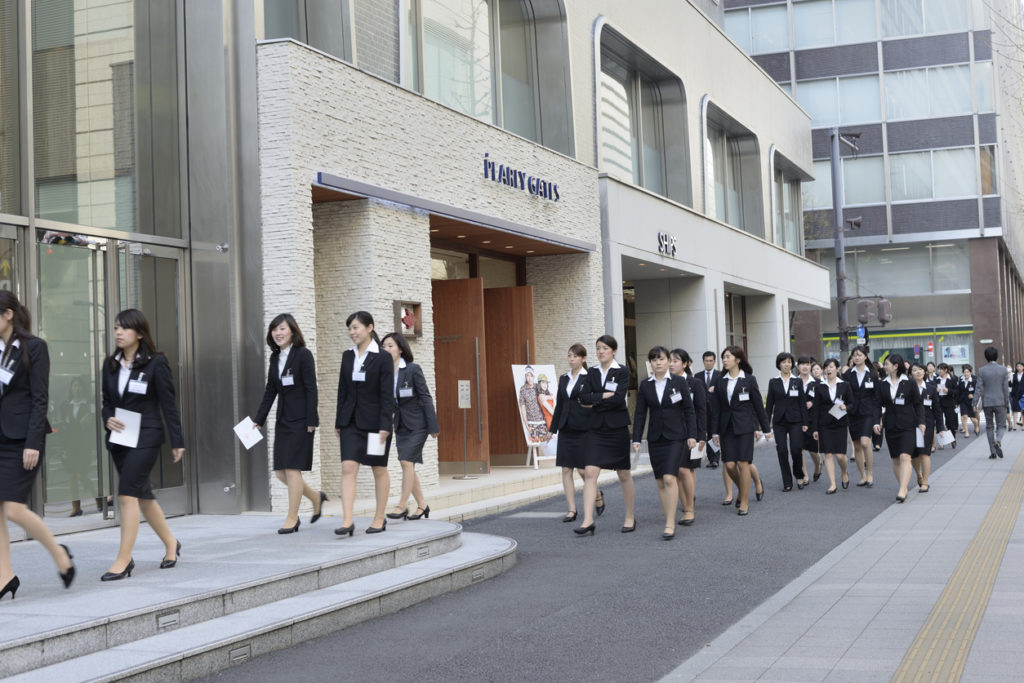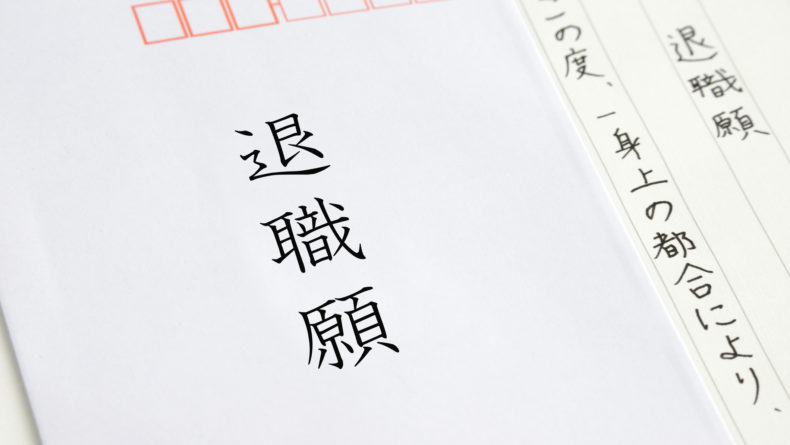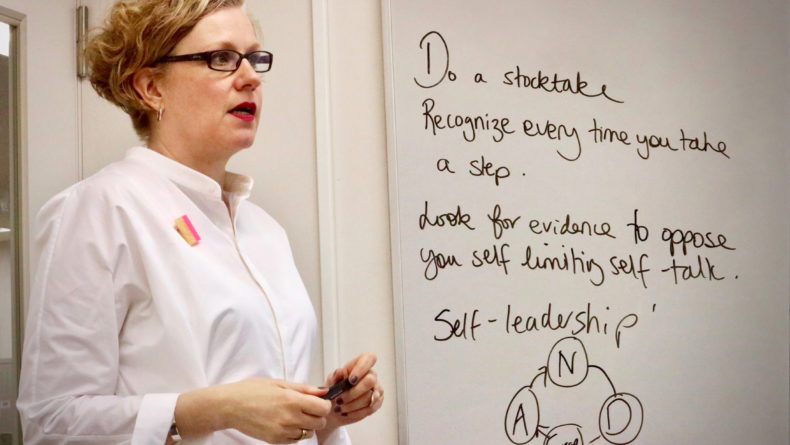6 Things I Wish Someone Had Told Me About Job Hunting In Japan
Foreign, Woman, And Looking For Job: Lessons Learned
Looking for a job in Japan can feel like climbing Mt. Everest — in a snowstorm, and in heels.
Looking for a job in Japan, especially if you don’t have native English teaching skills, can be a frustrating endeavor. Besides the obvious issues of the language gap and physical distance (if applying from abroad), our own assumptions and the tendency to look at things through rose-colored glasses may make the entire process far more complicated. So, in order not to make the same mistakes as me, here are a few key points to keep in mind when looking for a job in Japan — which I came to learn the hard way.

#1. Being multilingual is not a carte blanche for getting hired
Back when I was attending grad school in London and searching for jobs in Japan, I was sure that my Japanese language skills coupled with English would make me a shoo-in for an entry-level position. But I was absolutely wrong. I applied to every possible job, looked for contacts in the Japanese community in London, went to bilingual job fairs and ran after every lead. It took almost two years (and big support from all gods of luck you can name!) to finally find a job at a small company that would take me to Tokyo.
So, unless you have a true calling to teach or really unique skills that are high in demand, it is in general very tough to find companies that would be willing to hire and send a new graduate across the ocean based on language skills alone. So, instead of doing it the regular way, try something different—coming to Japan first, building connections on LinkedIn or other business groups, talking to people who’ve been through the process already and the like.
#2. “Business-level Japanese” means way more than Konnichiwa
Once you’ve settled down in Japan, have gained experience and are looking to change companies, one of the most important things to keep in mind is to beware of the moniker “business-level Japanese.” In 99 percent of cases, this means “a perfectly bilingual person who can speak/write Japanese and English at a native level.” Most companies will ask for JLPT results, with JLPT2 often being considered the minimum and JLPT 1 preferable.
Most companies will ask for JLPT results, with JLPT2 often being considered the minimum and JLPT 1 preferable.
I personally don’t believe that a JLPT1 necessarily indicates any particular ability to fend for oneself in business, but what it comes down to, really, is being absolutely honest with yourself about your level of language ability. I have interviewed many job seekers who labeled themselves as “business level” or “near-native” speakers when they could barely carry on a coherent conversation. If the position you’re applying for needs the language, you better be prepared for it.

#3. Don’t try to blend in—it’s pointless!
When I was younger and even more foolish, I tried to play by the rules by going through the rigmarole of applications and interviews for shinsotsu (new graduates), assuming this was the correct way to proceed. However, after much effort and trying to fit into the traditional mold, it finally dawned on me that working with the system is a waste of time for non-Japanese applicants.
No matter if you write all your applications by hand in perfect calligraphy or wear one of the typical penguin suits, there’s no way you will be treated like a regular applicant (unless you have spent your whole life here, in which case you will be hired instantly to provide “diversity”).
New arrivals or those looking to transition from an English teaching job to another sector will have to look for more unusual companies (such as start-ups, creative industries, and travel-related businesses) and most likely ignore the big names altogether, at least for a while. Look for companies that have more flexible job descriptions and already have somewhat diverse teams through more niche job portals (GaijinPot, Wantedly, and Daijob are a few good options).
#4. Choose your recruiters wisely
I was introduced to my last two positions by my go-to recruitment firm and was quite pleased with my experiences, but there are a few rules for (successfully) working with recruiters. The first is that, unless you have very specific skills (coding, engineering, design, customer service, etc.), first-time job seekers are unlikely to have much luck with recruiters, as they are rarely asked to fill entry-level positions.
The first is that, unless you have very specific skills (coding, engineering, design, customer service, etc.), first-time job seekers are unlikely to have much luck with recruiters, as they are rarely asked to fill entry-level positions.
For those with experience, it’s essential that you find an agency that specializes in what you are looking for, which is pretty easy thanks to Google and LinkedIn. Going with the bigger firms may seem like the best course of action, but in fact, a smaller recruitment company with strong connections in your field will have a much clearer idea of what you do and how you match the jobs they are looking to fill.
Once you’ve established a connection with your recruiter, stay persistent and keep regular contact with them — they’ll be sending you more ideas if they know you’re actively looking for a job.
#5. Potential employers will want to know EVERYTHING about you!
Particularly for younger applicants, many companies will feel it’s necessary to not only review your work and college history but even your high school and sometimes even middle school career! Questions about marital status, current or foreseeable children, what your parents think of you being in Japan (even once you are well out of your early 20s) are all fair game in the Japanese job-hunting process, and as much as it may be confusing for many foreigners, it’s normal in Japan.
Questions about marital status, current or foreseeable children, what your parents think of you being in Japan (even once you are well out of your early 20s) are all fair game in the Japanese job-hunting process, and as much as it may be confusing for many foreigners, it’s normal in Japan.
Answer the questions you’re comfortable answering and brush off such you don’t want to by making use of so desune (that’s correct) or sukoshi chigaimasu (not exactly correct) — with your best smile ever. You’ll have to be ready for a lot of explanations if you have something “odd” on your resume, such as having attended several different schools, gotten a Master’s or taken a scholastic or career gap.
In Japan everything is linear and there are no gaps between education and work years for most people, so if your employers see something that doesn’t fit their “life ladder,” they will get confused. But no worries, again, smile and politely say what made you do what you’ve done—and don’t forget to mention that back home this is normal!
#6. Be a critical judge of the company you’re applying for
Although the feeling of panic that comes from looking for a job and not getting anywhere is understandable (we’ve all been there), consider this a universal truth: if a company is treating you like dirt during the interview process, it’s unlikely to get any better after you are hired. If they show interest in you only because you’re a foreigner, it may mean that they’re simply looking for someone to correct their press releases and emails in English.
Seek companies that are flexible and open to you in all your foreignness. In my honest personal opinion, it may be wise to avoid the more traditional shosha (trading companies) or other long-standing mammoths of the Japanese economy, because things are still very old school there (including the morning group exercises). Although some local companies are loosening up, foreign-run companies, tourism-related businesses, online services, and startups are likely to be more open to “unusual” candidates — which most of us are.
Although some local companies are loosening up, foreign-run companies, tourism-related businesses, online services, and startups are likely to be more open to “unusual” candidates — which most of us are.
Also, as much as possible, make sure you visit the office after 8 p.m. to check how many people are still there — you’ll thank yourself later.
You can find more articles on working in Japan here.
What experiences have you had when job hunting in Japan? Leave any unique stories, tips or advice in the comments!

















Leave a Reply